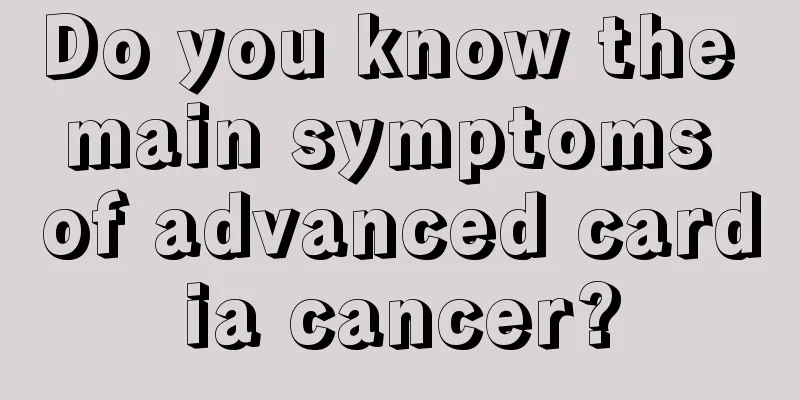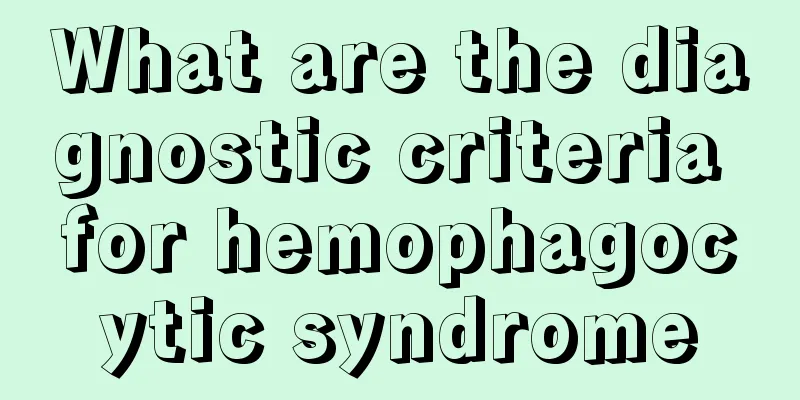Can neurasthenia and insomnia heal itself?

|
There are many reasons for insomnia, such as stress or neurasthenia. If a person suffers from insomnia for a long time, not only will his resistance be reduced, but he will also be listless, affecting his work and study. He needs to actively treat neurasthenia and improve sleep, adjust his mentality, eat some foods that are conducive to sleep, and exercise during the day to help him sleep. Can neurasthenia and insomnia heal itself? Let's take a look. 1. Can neurasthenia and insomnia be cured by themselves? 1. The length of sleep is not the most important indicator for assessing adequate sleep. Sleep time varies from person to person and there are great individual differences. 5% of people need less than 6 hours of sleep a day, and another 5% need more than 10 hours of sleep a day. The average adult sleeps between 5-9 hours a day. As we age, our sleep time gradually decreases, and after middle age we no longer need as much sleep as we did when we were young. Some people are obsessed with the length of their sleep, which causes unnecessary distress and leads to psychological insomnia. As long as you wake up refreshed and energetic, your sleep time is sufficient. 2. Don’t worry too much about occasional insomnia in life. One or two nights of insomnia will not have much impact on your body and mind. There are many reasons for occasional insomnia, such as unemployment, debt, broken love, divorce and other difficulties encountered in life or changes in the sleeping environment. Generally, after the difficulty is eliminated or you gradually adapt, you will automatically return to normal sleep. The more you worry about having insomnia again, the harder it will be to fall asleep at night. Don’t worry about insomnia, you will fall asleep naturally when you feel sleepy. 2. Causes of neurasthenia and insomnia 1. "Dizziness, palpitations, shortness of breath, weakness in the limbs, physical weakness, general discomfort, long-term insomnia" and so on. 2. Preliminary diagnosis: Neurasthenia. Neurasthenia refers to a neurosis characterized by easy mental excitement and mental fatigue, often accompanied by emotional distress and some psychological and physiological symptoms. The disease is more common in young and middle-aged people, and is more common in people who do mental work, such as students about to take exams, teachers, drivers, doctors, writers, etc. Prolonged mental work, lack of sleep, long-term fatigue or mental stimulation, such as family disputes, love setbacks, career failure or tense interpersonal relationships can easily cause neurasthenia. The clinical manifestations of neurasthenia patients are complex. It is usually believed that the most important manifestations are easy excitability, irritability, and mental fatigue. If they read or study for a long time, they will feel a headache, dizziness, and difficulty concentrating. They also have headaches and irregular sleep. They often have difficulty falling asleep, early awakening, or difficulty falling asleep again after waking up, and they often have nightmares. They have autonomic nervous system disorders, tachycardia, sweating, anorexia, constipation, diarrhea, menstrual disorders, and premature ejaculation, and secondary hypochondriasis. 3. Can be divided into six categories (1) Lack of mental power and mental fatigue: Patients often feel lack of energy, listless, unable to use their brains, or have slow brain power, inability to concentrate, memory loss, and reduced work efficiency. (2) Sensitivity to internal and external stimuli: ① No organic lesions exist. ②The more the patient pays attention to a certain part or symptom, the more painful it becomes. The more obvious it is, the more you can divert their attention and the less severe or even eliminate it. ③The distribution of the pain sites does not necessarily conform to the anatomical locations, and the locations are not fixed and may change. ④ The symptoms described by the patient were numerous and complicated, making it difficult to understand. After talking for a long time, it was still unclear what was wrong with him. (3) Mood swings, irritability, and lack of patience ①Easy to worry ②Easily happy and easily angry. (4) Tension pain It is usually caused by tension, with tension headache being the most common. Patients feel a heaviness, swelling, tightness or stiffness in the head, or a stiff neck. Some also experience muscle pain in the back and limbs. The degree of this pain has no obvious relationship with fatigue, and it cannot be relieved even by rest. The manifestations of pain are often complex. They can be continuous pain or intermittent pain. Some patients also experience dull pain or stabbing pain. In general, the manifestations of tension pain in patients with neurasthenia are diverse, but they are closely related to emotional tension. |
<<: How can I fall asleep quickly after insomnia massage?
>>: How long does it take for iodine to kill bacteria after applying it
Recommend
The order of using sunscreen and isolation cream
Many girls have sunscreen and isolation cream, bo...
The dangers of brain cancer that cannot be ignored
As our lives continue to expand, we are getting b...
What is corticotropin-releasing factor
In today's social life, there are always dise...
What are the nursing and diagnostic criteria for anxiety
Nowadays, many people often find everything they ...
What kind of tea is oolong tea?
Oolong tea is the representative of Chinese tea. ...
How to grow hair faster?
The growth of hair is actually related to the hea...
Eating too much or too hot food can easily lead to stomach cancer. People from which parts of the country are more likely to get stomach cancer
Gastric cancer seems to favor office workers, pro...
Is walnut a nut?
Walnuts belong to the category of nuts, most of w...
How to preliminarily diagnose nasopharyngeal carcinoma
How to preliminarily diagnose nasopharyngeal canc...
The harm of drinking coix seed water for a long time
Job's tears water is both food and traditiona...
Is rabies virus an anaerobic virus?
In modern life, there are many disease viruses th...
Is it good to sleep in a bra?
Girls all love beauty. Nowadays, girls wear body ...
How to improve your emotional intelligence
People with high emotional intelligence always se...
Are there any good folk remedies for lymphoma?
Are there any folk remedies for lymphoma? Conside...
How do you get liver cancer and lung cancer? The causes of liver cancer and lung cancer are revealed
Liver cancer is a cancer that occurs in the liver...









